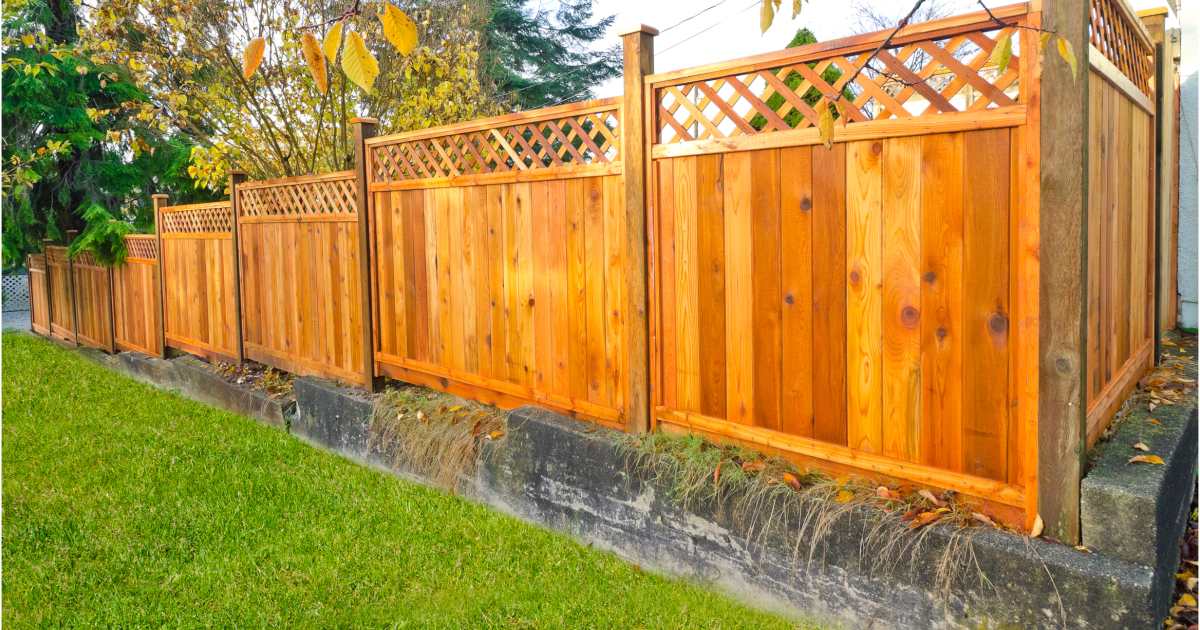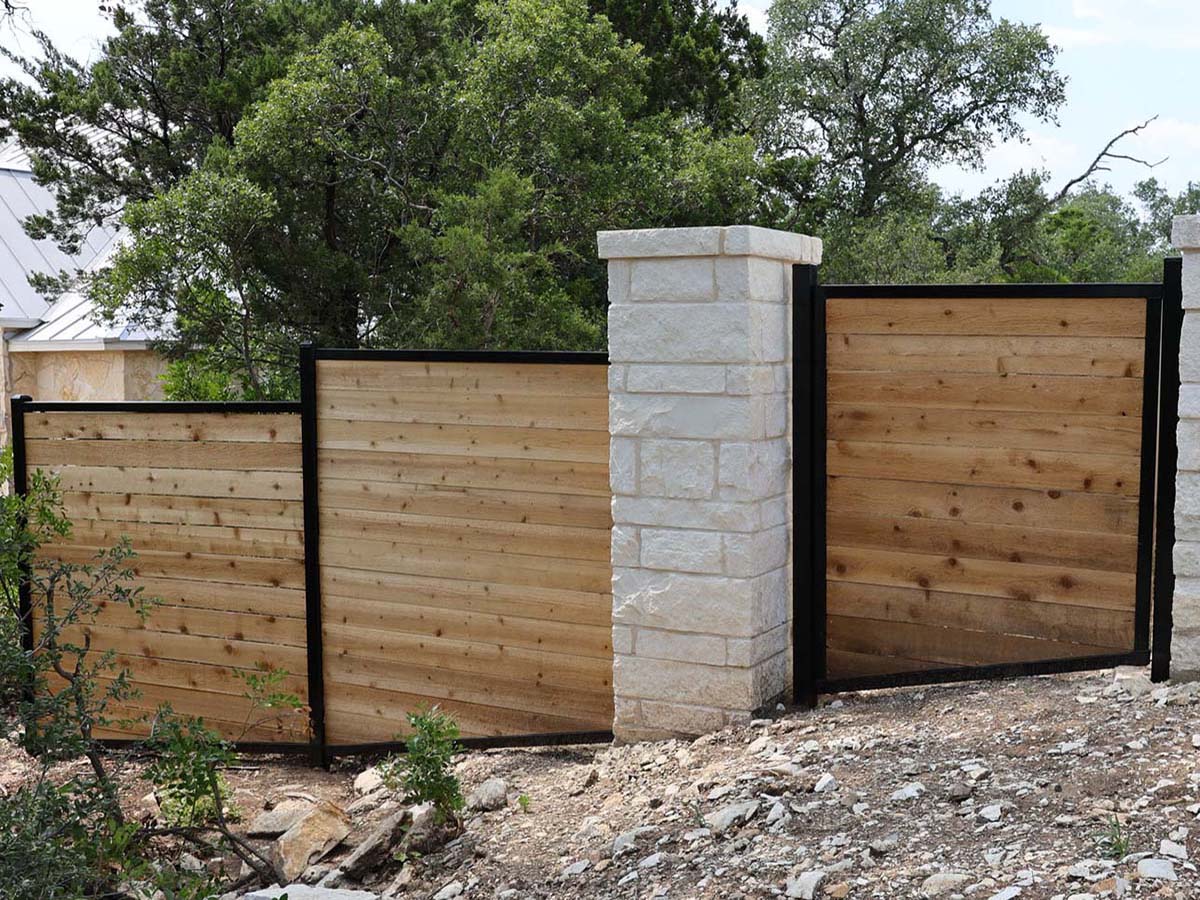All Categories
Featured
When you choose to mount a fencing around your property, it's necessary to recognize the license needs specific to your location. While installing a fence can seem like a simple home enhancement job, neighborhood legislations and policies must be complied with to make certain the setup is compliant and legal. Falling short to protect the appropriate permits might cause fines or even require you to get rid of the fence. Right here's a detailed take a look at the authorizations you may require for fencing installment.
Why Do You Required a Permit for Fencing Setup? A fencing is more than just a barrier in between buildings-- it can influence safety and security, residential property value, appearances, and also ecological conditions. City governments require licenses to make certain that fencings satisfy particular criteria and do not create problems for energies, neighbors, or the neighborhood in its entirety. Licenses additionally guarantee that the installment abides with zoning laws, building codes, and security guidelines.
![]()
Kinds Of Authorizations You May Require. Building License. A building authorization is one of the most typical authorizations needed for fence setup. If you're constructing a fencing over a specific height (commonly over 6 feet), you'll likely require a building authorization.
Zoning Permit. A zoning authorization ensures your fencing complies with height, location, and trouble policies. Fencings might require to be set back a certain distance from walkways, roads, or home lines to prevent blockage or disturbance with utilities.
HOA Approval. You might require to seek authorization prior to mounting a fencing if your property is component of a home owners organization (HOA) HOAs usually have standards that control the aesthetic appeals and framework of fences to guarantee they agree with the area. You may require to submit your strategies for authorization, and the HOA may limit fencing design, height, or product.
Specialty Permits. In some areas, there may be extra licenses needed for details circumstances. If your fencing is near a secured environmental location or located in a flooding zone, you may need to acquire specialized licenses related to ecological influence. Likewise, if the fencing is in a location with below ground energies, you may require to obtain clearance to prevent destructive pipelines or wires.
![]()
Easement or Energy Business Approval. Prior to mounting a fencing, it's vital to check whether the residential or commercial property consists of an easement, such as an utility easement, which might affect where you can position your fence. Easements are areas of land marked for public or exclusive utilities, and you may require permission from the energy firm or various other authority to build within this area.
Just How to Discover What Permits You Required. To make certain that you're complying with all the required guidelines, right here's just how you can determine the certain licenses required for your fencing setup:
![]()
Check Out Your City Government Workplace: The very first step is to inspect with your local building or zoning department. Lots of cities and counties have guidelines available online that define what kinds of permits are required for fencing installation. If not, calling or going to the workplace in individual can help clarify the procedure. Examine Your City's Internet site: Numerous towns offer details about fence installments and the licenses called for with their main websites. Some sites even permit you to submit applications on the internet. Seek Advice From a Fencing Installment Specialist: If you're unsure regarding neighborhood guidelines, an expert fencing contractor can assist. They know with the allowing procedure and can direct you through the actions. The Repercussions of Not Getting a License. Failing to secure the essential authorizations before installing a fencing can cause considerable repercussions. You might be fined or required to remove the fence completely. Furthermore, if you make a decision to sell your residential property in the future, the lack of an authorization could hinder possible customers, as they might see it as an indication that the residential property is not certified with neighborhood legislations. Ensuring that you have the correct permits will certainly conserve you time, money, and migraines in the lengthy run.
Verdict. Setting up a fence around your property can add both security and visual allure, however it is very important to guarantee you're adhering to the legal steps in the procedure. Researching the details license needs for your location, including building licenses, zoning regulations, HOA authorization, and utility permissions, will assist ensure your fencing setup goes efficiently. Putting in the time to comprehend these demands currently can conserve you from pricey mistakes and potential lawful problems down the line.
Why Do You Required a Permit for Fencing Setup? A fencing is more than just a barrier in between buildings-- it can influence safety and security, residential property value, appearances, and also ecological conditions. City governments require licenses to make certain that fencings satisfy particular criteria and do not create problems for energies, neighbors, or the neighborhood in its entirety. Licenses additionally guarantee that the installment abides with zoning laws, building codes, and security guidelines.

Kinds Of Authorizations You May Require. Building License. A building authorization is one of the most typical authorizations needed for fence setup. If you're constructing a fencing over a specific height (commonly over 6 feet), you'll likely require a building authorization.
Zoning Permit. A zoning authorization ensures your fencing complies with height, location, and trouble policies. Fencings might require to be set back a certain distance from walkways, roads, or home lines to prevent blockage or disturbance with utilities.
HOA Approval. You might require to seek authorization prior to mounting a fencing if your property is component of a home owners organization (HOA) HOAs usually have standards that control the aesthetic appeals and framework of fences to guarantee they agree with the area. You may require to submit your strategies for authorization, and the HOA may limit fencing design, height, or product.
Specialty Permits. In some areas, there may be extra licenses needed for details circumstances. If your fencing is near a secured environmental location or located in a flooding zone, you may need to acquire specialized licenses related to ecological influence. Likewise, if the fencing is in a location with below ground energies, you may require to obtain clearance to prevent destructive pipelines or wires.

Easement or Energy Business Approval. Prior to mounting a fencing, it's vital to check whether the residential or commercial property consists of an easement, such as an utility easement, which might affect where you can position your fence. Easements are areas of land marked for public or exclusive utilities, and you may require permission from the energy firm or various other authority to build within this area.
Just How to Discover What Permits You Required. To make certain that you're complying with all the required guidelines, right here's just how you can determine the certain licenses required for your fencing setup:

Check Out Your City Government Workplace: The very first step is to inspect with your local building or zoning department. Lots of cities and counties have guidelines available online that define what kinds of permits are required for fencing installation. If not, calling or going to the workplace in individual can help clarify the procedure. Examine Your City's Internet site: Numerous towns offer details about fence installments and the licenses called for with their main websites. Some sites even permit you to submit applications on the internet. Seek Advice From a Fencing Installment Specialist: If you're unsure regarding neighborhood guidelines, an expert fencing contractor can assist. They know with the allowing procedure and can direct you through the actions. The Repercussions of Not Getting a License. Failing to secure the essential authorizations before installing a fencing can cause considerable repercussions. You might be fined or required to remove the fence completely. Furthermore, if you make a decision to sell your residential property in the future, the lack of an authorization could hinder possible customers, as they might see it as an indication that the residential property is not certified with neighborhood legislations. Ensuring that you have the correct permits will certainly conserve you time, money, and migraines in the lengthy run.
Verdict. Setting up a fence around your property can add both security and visual allure, however it is very important to guarantee you're adhering to the legal steps in the procedure. Researching the details license needs for your location, including building licenses, zoning regulations, HOA authorization, and utility permissions, will assist ensure your fencing setup goes efficiently. Putting in the time to comprehend these demands currently can conserve you from pricey mistakes and potential lawful problems down the line.
Latest Posts
Discover WyHy Federal Credit Union – Exclusive Benefits for Your Financial Success
Published en
1 min read
Why Routine Vehicle Maintenance at Montclare Auto Repair Keeps Your Wallet Happy
Published en
1 min read
Seamless Aluminum Rain Gutters: The Smart Selection for Your Home
Published en
1 min read
More
Latest Posts
Discover WyHy Federal Credit Union – Exclusive Benefits for Your Financial Success
Published May 28, 25
1 min read
Why Routine Vehicle Maintenance at Montclare Auto Repair Keeps Your Wallet Happy
Published May 26, 25
1 min read
Seamless Aluminum Rain Gutters: The Smart Selection for Your Home
Published May 24, 25
1 min read